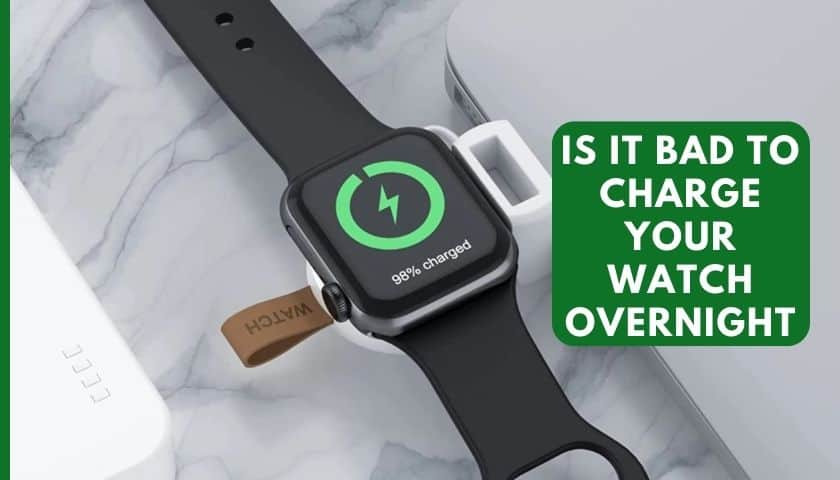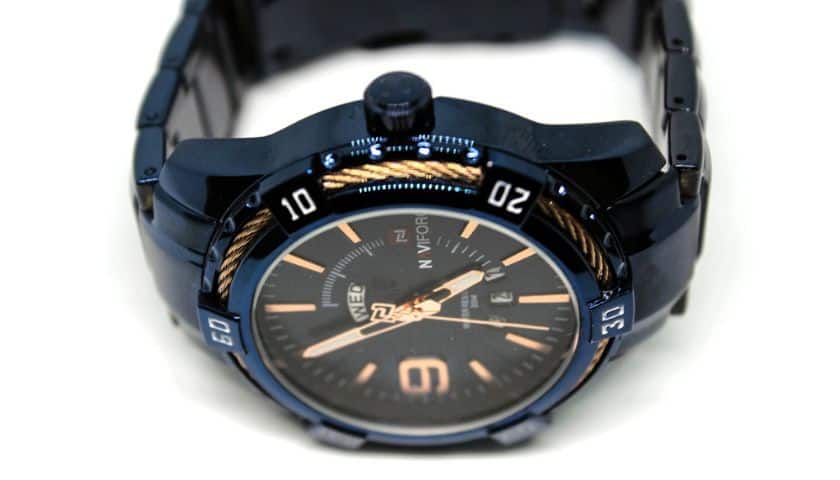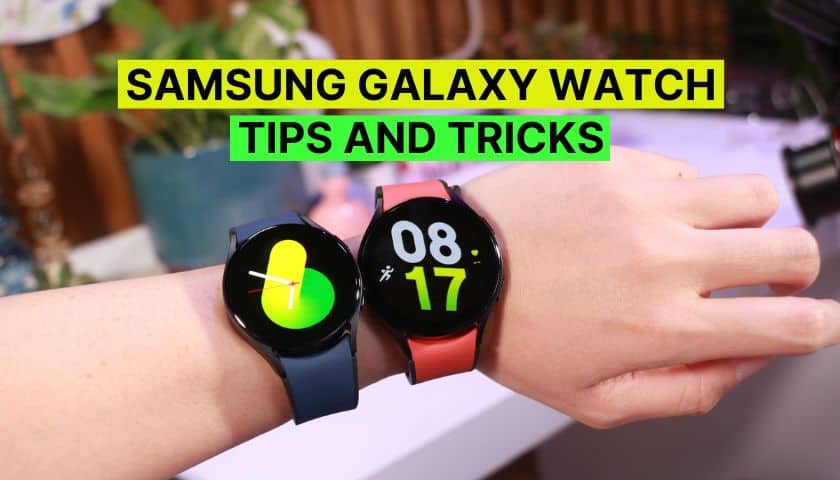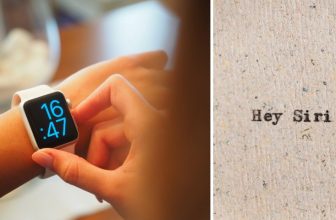Is It Bad to Charge Your Watch Overnight? A Safety Concern for Your Smartwatch

As an Amazon Associate, I earn from qualifying purchases.
Many users charge their smartwatches overnight. This ultimately results in a long time of charging or even overcharging. So, is it bad to charge your watch overnight? Unless your watch has the latest technology to adapt to overcharging, charging overnight can be bad for your watch.
Charging overnight can affect the quality of the battery, create overheating, and damage the capacity & longevity. Therefore, the following analysis will inform you about the potential impact of charging your wristwatch overnight and the best ways to avoid it.
One of the main differences between a regular analog watch with a timer is the electrically rechargeable battery. The proper way of charging is a must for the longevity of the battery.
Is It Bad to Charge Your Watch Overnight?
Different things can determine whether charging your watch overnight bad or not. The best option is to avoid it for preventing any possible issues.
If you are usually dealing with the habit of overnight charging, this may not be a big matter of having a built-in charging sensor in the watch. The system will automatically cut off the power if fully charged.
But this overnight charging can be dangerous for the battery of your watch if it does not have smart options like trickle charging.
In this case, the watch will lose some power and the circuit will automatically start powering it up. This process will continue repeatedly that will overheat the battery.
The overheated battery will gradually lose its usual capacity and longevity. Moreover, this issue can result in a fall in the overall performance of your watch.
So, apart from all the smart options or facilities, you should try to avoid this for maintaining the quality of your watch.
How to Maintain a Smartwatch Charge Cycle?
The total lifetime charging cycle of a smartwatch ranges around 500-1000. A single cycle deals with the full charge from 0% to 100% but it is not a good choice to wait for the battery to reach the dead end.
A battery can hold a charge for around 24 to 40 hours and therefore a smartwatch might require a single recharge a day. It is also suitable to plug in the charger of a smartwatch left with 20-30% charge.
How to Maximize the Battery Life of Smartwatch?
Unplanned use of a smartwatch can cause extensive power drainage from the battery.
So, you need to be careful about every little thing to increase the lifespan of the battery. There are different ways to follow to maximize the battery life of a smartwatch.
- As the timer shows different notifications, you can make a plan to stop notifications about less important sections. This will decrease battery drainage.
- The brightness of the screen always requires a good amount of power from the battery. So, you can minimize the brightness when the watch is not in active use. This will decrease battery consumption.
- If you avoid using an always-on display system, you can maximize the battery life.
- Bluetooth, Wi-Fi, and internet option are standard features of a smartwatch. Using them continuously consumes power. Tapping them off occasionally will help maximize the battery life.
- If your smartwatch comes with the option of power saving mood, you can use it suitably to reduce battery usage.
- Voice assistance in the smartwatch needs extra use of the battery so you can turn it off when not necessary.
- More apps mean more use of the power from the battery. So uninstall the apps which you do not use frequently.
- Theatre mood in a timepiece can be very effective to optimize the apps and reduce power consumption.
How to Avoid Charging Your Smartwatch Overnight?
In some cases, charging a smartwatch overnight may not look severely threatening but the best thing is to avoid this for mitigating all possible effects. The following ways can be used.
1. Switch off the watch before plugging in the charger
To avoid the overnight charging of your watch in case you forget to unplug the charger before sleeping, charging the watch switched off can be handy.
In this case, the built-in system of the timer will automatically cut off the power distribution after the charge completion.
2. Use a quality fast charger
It is always best to use the selected charger for your watch. But to avoid overnight charging, you can occasionally use a fast charger to complete charging your watch as early as possible.
3. Try to start charging earlier
If you don’t want to go for overnight charging, try to put your watch in charge 1 to 2 hours earlier before you go to sleep.
4. Maintain a planned battery cycle
Charging from 0% will take extensive time to charge the battery enough. Therefore, try to maintain a charging time of 20-30% charge left. This will reduce the chance of leaving your smartwatch for overnight charging.
5. Do not leave it for a 100% charge
It is not compulsory to reach the highest charging percentage every time you plug in the charger to your wristwatch. 80% is healthy enough to keep the status of the battery of your watch. So, don’t leave your watch overnight for 100% charge.
6. Use an alarm
If it gets compulsory to charge the watch at night, use an alarm to avoid the overnight charging of your watch. Set the alarm 1 to 1.5 hours later from the beginning of the charging to get a healthy percentage before discharging the charger.
7. Use an additional charging option
To avoid charging your smartwatch overnight, you can use an additional charging facility like a power bank. This will fulfill the requirement of charge in urgency and you will not have to leave the watch in charge at night.
Frequently Asked Questions (FAQs)
What is the average charging time of smartwatches?
If your watch is left with 0% charge, it will take a bit longer time like around 3-4 hours on average to fully charge. But having some minimum charge left, a smartwatch can be fully charged within 1.5-2 hours.
Should you completely discharge your smartwatch?
You should not discharge your smartwatch completely as it hampers the regular booting system. A timer is supposed to boot down manually so power off due to complete discharge is better to be avoided. You should recharge your watch with at least 5-10% charge left.
What are the battery types used in smartwatches?
There are different types of batteries used in smartwatches. Lithium-ion is one of the most popular types of battery. Besides, Li-polymer is another widely used battery for smartwatches. The versions for these types of batteries can be 3.7V or 3.8V.
Does charging smartwatches overnight damage the battery?
Unless your timepiece has a built-in nightstand feature, charging smartwatches overnight may lead to overheating. This will gradually damage the lifespan of the battery. Li-ion battery is more vulnerable to this overcharging.
Is it OK to leave a phone charging for a week?
It may not be a big issue for the smart charging option as the system will automatically stop on a full charge. But leaving a phone charging for a week switched on can harm the battery and the charger. The usual Android phones are at more risk of overcharging.
Final Words
A healthy status of the battery of your smartwatch is significant for enhancing user experience. So, it is necessary to how and what to follow for maintaining smooth charging.
Hence, the article “Is it bad to charge your watch overnight? A safety concern for your smartwatch” discussed all the things related to overnight charging.
Alongside, the issues related to charging your watch properly and safely avoid overnight charging.
Plus, I have discussed the charge cycle of the battery of a wristwatch and presented practical tips to maximize the battery life. These well-researched data aim to increase the productivity of your timepiece.
As an Amazon Associate, I earn from qualifying purchases.
- 9 Best ABC (Altimeter, Barometer, Compass) Watches Of 2025 - July 5, 2023
- How to Get Rid of Watch Rash Instantly | Learn 7 Excellent Ways - June 2, 2023
- How to Set up And Use Apple Pay on Apple Watch to Pay Easily - May 17, 2023






